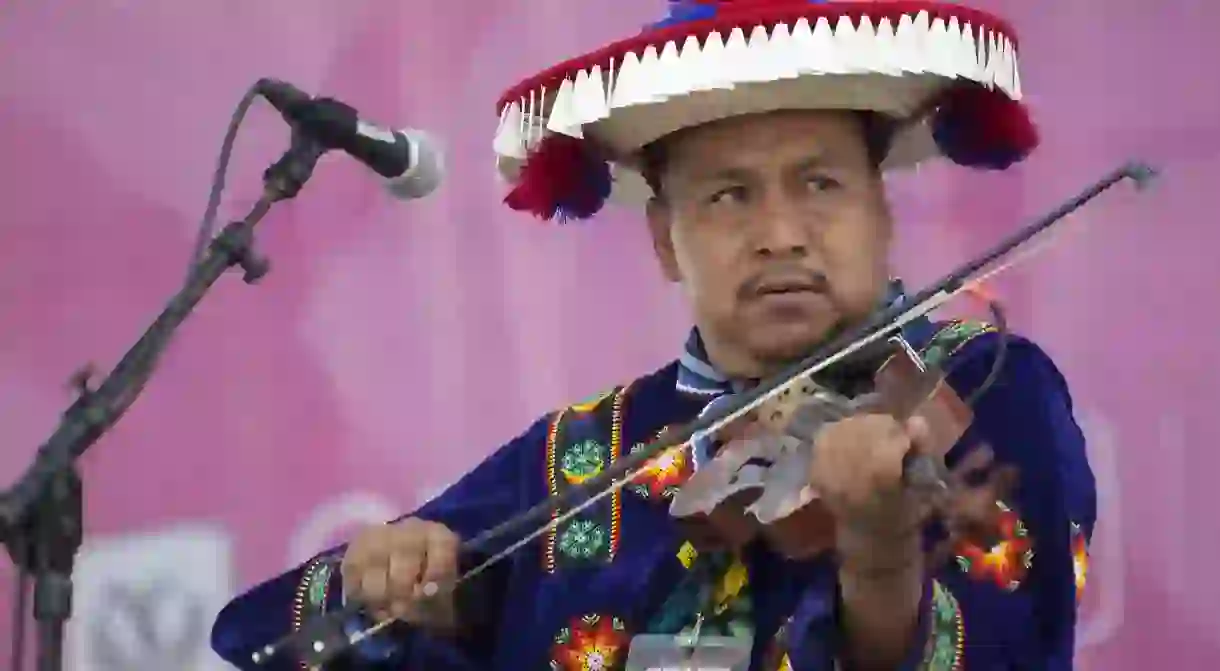This Indigeneous Mexican Music is Grabbing the Mexican Spotlight

Numbering around 45,000, the Wixárika, or Huichol, people originated from the highlands in the Mexican states of Nayarit, Jalisco, Zacatecas and Durango and are famed for their colorful artwork and ritual use of the psychedelic plant peyote. But it was not until recently that the tribe’s traditional music began to attract attention from outsiders.
Yuawi López
The surge in interest is due to a campaign song released by the Citizen’s Movement Party in December 2017. The YouTube video of the maddeningly catchy tune has already racked up more than 46 million views, and is a song performed by 9-year-old singer Yuawi López, who appears dressed in traditional Wixárika clothing.
López, now a household name in Mexico, is set to release an album with his band Venado Azul. The group has already played at several music festivals around the country, as well as performed in Canada.
https://www.youtube.com/watch?v=Ti2pA5JgrMI
Wixárika instruments
Traditional Wixárika music is performed with a violin-type instrument called a xaweri which is played with a bow, or kanari. The instrument is used for rituals or simply to entertain. With its high-pitched sound, the xaweri is often associated with birds and birdsong.
The tepu drum is another instrument commonly used in Wixárika music and is often regarded as the most sacred. The kaitsa (rattle), ‘awá (bull’s horn), and wooden flute are also commonly played with other acoustic instruments, such as the guitar or double bass, and modern Wixárika performers often use professionally manufactured violins instead of the traditional xaweri.
Huichol Musical
The first Wixárika group to enjoy significant mainstream success was Huichol Musical, who racked up more than eight million YouTube views with their 2008 hit “Cumbia Cusinela”. Consisting of five Wixárika men from the Sierra Madre Occidental region in the western state of Jalisco, the band mixes traditional music with more current rock or cumbia rhythms. The result is a unique fusion sound that has earned them widespread critical acclaim. The band’s first album, also called Cusinela, was nominated for a Grammy for “Best Regional Mexican Album” in 2009.
The price of success
The growing interest in Wixárika music and culture brings a new set of challenges for the musicians. Some of the elements that are most important to Wixárika culture can be disturbed by success: musicians often leave their community setting and their children grow up in a different context, away from Wixárika language and culture.
For someone as young as Yuawi López, this is even more difficult and his involvement in the campaign song was highly controversial. Critics said that children should not be used for political ends. Presidential candidate Andrés Manuel López Obrador even made an official complaint to the electoral authorities about the Citizen’s Movement Party using children for political promotion purposes. The request was rejected on the grounds that López’s parents had consented.
On the other hand, the interest in Wixárika music and culture generates income for the community, whose people suffer alarming rates of poverty. The growing visibility of this historically marginalized group can strengthen its political position and increase awareness about the struggles its indigenous people face.














